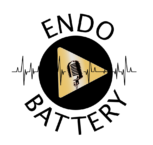
Send us a text with a question or thought on this episode ( We cannot replay from this link)
Imagine enduring a pain so severe that it dictates every moment of your life, yet being told it's all 'in your head.' Our guest, Nathali, shares a poignant narrative of her battle with endometriosis and adenomyosis—a tale that begins with dismissed symptoms in high school and evolves into a relentless quest for answers. She unveils the raw truth behind misdiagnoses and the frustration of facing a healthcare system that often undermines those with chronic conditions. Her journey is not just a testament to her fortitude but also a rallying cry for patient advocacy and the critical need for specialized care.
As we listen to Natalie recount her experiences with pelvic floor dysfunction and the search for relief, it's akin to watching a warrior reclaim her strength. The discovery of a supportive community and the role of pelvic floor therapy mark a transformative chapter in Natalie's life, offering a glimmer of hope to listeners who may be sharing a similar path. This episode is a gripping exploration of the intersection between personal struggle and collective empowerment, encouraging patients everywhere to become champions of their own health and well-being. Join us for an intimate and inspiring conversation that illuminates the courage required to fight back against a daunting adversary: one's own body.
Website endobattery.com
